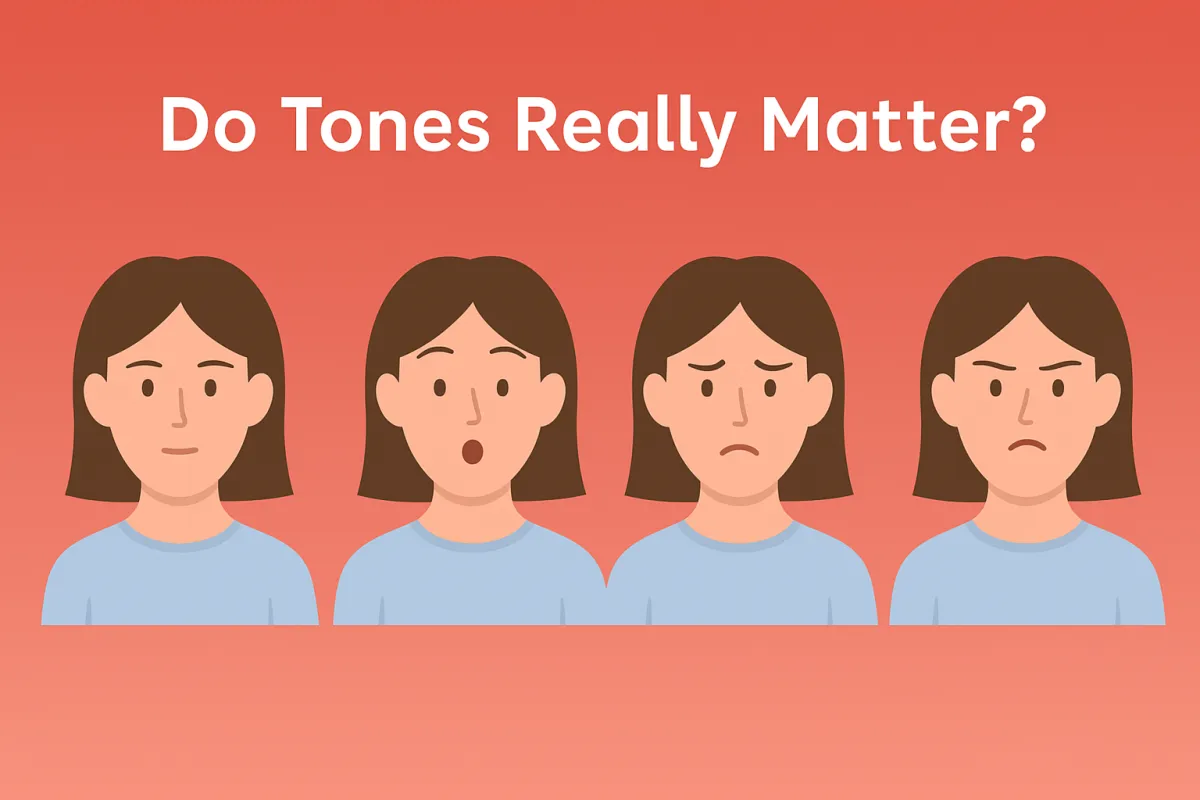
Do Tones Really Matter in Chinese? (Yes—Here’s Why)
Do Tones Really Matter in Chinese? (Yes—Here’s Why)
If you’re just starting to learn Chinese, you’ve probably heard someone say,
“Be careful with your tones!”
And you might be wondering:
Do tones really matter that much? Can’t people understand me through context?
The short answer is: Yes, tones absolutely matter.
In fact, they’re crucial to being understood in spoken Chinese.
Let’s break down why tones are so important—and how you can master them without stress.
🗣️ What Are Tones in Chinese?
In Mandarin Chinese, every syllable is spoken with a pitch contour, or tone, that changes the word’s meaning.
There are 4 main tones, plus a neutral tone:
🎯 Why Tones Matter So Much
1. Same Sound = Many Meanings
Unlike English, where one word has one meaning, Chinese relies on tone to distinguish meaning.
For example:
妈 (mā) = mother
马 (mǎ) = horse
骂 (mà) = to scold
So if you mix them up, you might accidentally say:
“I love my horse” 🐴 instead of “I love my mom” 👩👧
2. Context Helps, But Only Sometimes
Yes, native speakers can guess from context, especially in longer conversations—but for short phrases or single words, incorrect tones can lead to:
Misunderstandings
Blank stares
Embarrassing mistakes
Or even something funny!
Imagine someone saying “你好马” (nǐ hǎo mǎ — “hello horse”) instead of “你好吗” (nǐ hǎo ma — “how are you?”)
💡 How to Learn Tones Effectively
Tones may seem hard at first, but they’re totally learnable. Here are some tips:
✅ 1. Practice With Audio
Use tone-specific drills, Pinyin apps, or shadow native speakers.
✅ 2. Don’t Memorize Words Without Tones
Always learn word + tone together. Treat them as one unit—not separate.
✅ 3. Say It Out Loud
Chinese is a spoken language first. The more you say it, the more natural tones become.
✅ 4. Record Yourself
Compare your pronunciation to native speakers and adjust accordingly.
✅ 5. Focus on Listening
Tuning your ear helps you imitate tones more accurately than just reading tone marks.
✅ In Summary
🧧 Final Thoughts
Tones are what make Chinese both beautiful and challenging. But they’re also what make it unique. Think of tones like music—once you train your ear, they start to feel natural.
So yes, tones really do matter. And the more you practice, the more fluent (and confident) you’ll become.
